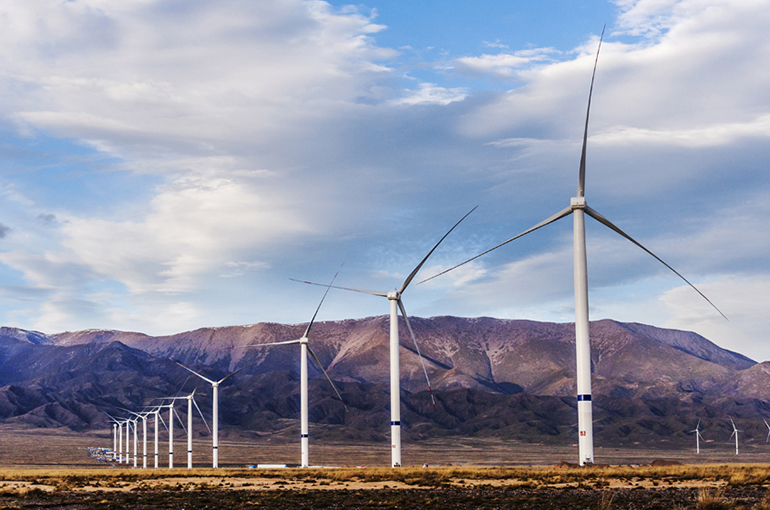 China’s Clean Energy Sector Faces Global Protectionism Test
China’s Clean Energy Sector Faces Global Protectionism Test(Yicai) April 11 -- China’s vast renewable energy sector is facing a major challenge brought about by increasing trade protectionism, with the United States and the European Union taking steps to reduce their reliance on the country in this field.
“Global renewable energy trade is increasingly marked by protectionism, as governments impose restrictions to bolster domestic industries,” according to the annual Global Status Report published by REN21, the Renewable Energy Network on April 4.
The US and the EU have taken action to scale back their dependence on China’s minerals and renewable energy parts and technologies, while the Asian country still dominated renewable energy manufacturing last year, particularly in solar power, and remains a key producer and supplier of critical minerals, the report said.
The US Inflation Reduction Act and the EU’s Net-Zero Industry Act and the Carbon Border Adjustment Mechanism are policies “promoting energy independence, diversifying supply chains to more countries and countering the dominance of key players such as China in the global energy market,” the report noted.
‘Friend-Shoring’ Trend
“Globally, the [renewable energy] trade landscape is increasingly shaped by ‘friend-shoring,’ or the practice of relocating supply chains to, and sourcing inputs from, countries that are considered political and economic allies,” the report said.
Both the US and the EU have embarked on “friend-shoring” and on-shoring to bolster supply chains and diversify the supply of green energy products away from China.
“What these countries are doing is to seize the opportunity that renewables bring of creating a lot of local value, creating an industrial economy that can create jobs and economic growth and development,” Ana Díaz Vidal, knowledge and data lead at REN21, told Yicai.
China remains the leading clean energy player, adding 216.9 gigawatts of installed solar power capacity to rank first worldwide, according to REN21. It accounted for 44 percent of global investment in renewable energies, down from 53 percent the year before, partly because the US and the EU hiked spending in this direction.
China had 80 percent of the world’s solar panel production capacity and 60 percent of its global production capacity for wind and other new energy equipment last year, the report also said. The country also created 41 percent of the world's renewable energy jobs.
Import Ban Folly
Díaz Vidal said that full bans on imports of some products without a plan to produce solar modules of equal quality would harm a country’s local industry. So it is essential to ensure that renewable energy benefits society as a whole, fostering economic growth and creating jobs while increasing competitiveness and environmental awareness, she said.
But one does not exclude the other, Díaz Vidal pointed out. For example, Chinese renewable energy companies that entered the US market by building local plants with IRA subsidies are enjoying the benefits of localized production while helping build a local supply chain.
When discussing protectionist measures and geopolitical issues, it is imperative to keep in mind the shift toward renewable energies, Díaz Vidal noted. So the rules of the World Trade Organization that were laid out in the 20th century may no longer be suitable for the rapid transition to renewable energies and related infrastructure and industrial development needed to achieve sustainable goals, she added.
International Cooperation
“Something we do right is to go beyond governments and look at real international cooperation, bringing together actors from science and academia, industry, governments, internet, intergovernmental organizations,” Díaz Vidal said.
“This is where true cooperation can work because often we encounter situations or roadblocks where there are two groups of stakeholders with opposing needs or views, and we are stuck,” she said.
Publishing the Global Status Report every year also serves as a powerful tool to hold all players accountable in the renewable energy sector, keeping account all of the latest changes, Díaz Vidal noted.
Founded in 2004, REN21 is a Paris-based renewable energies think tank. It published the first Global Status Report in 2005.
Editor: Futura Costaglione